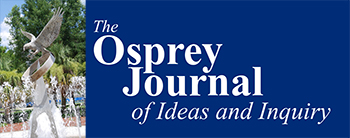
All Volumes (2001-2008)
Volume
Volume VI, 2007
Document Type
Article
Publication Date
2007
Abstract
According to Henry J. Frankfurt, the claim that “ought implies can” is taken by many philosophers as so foundational as to almost be considered an “a priori” truth. In his paper “Alternate Possibilities and Moral Responsibility,” Frankfurt challenges this assumption. He proposes the “revised principle of alternate possibilities,” asserting that we intuitively absolve agents of moral responsibility only if they act solely because they could not do otherwise. Ten years later, John Martin Fischer challenges Frankfurt’s claim, asserting that this cannot be the case if an agent exists within a universe governed by actual sequence causation and therefore, moral accountability and determinism remain non-reconcilable. These seemingly incompatible claims may be reconcilable after thorough analysis of intentionality. Even in the face of existence within a nominologically inevitable determinism, a kind of “Error Theory Compatibalism” is feasible.
Suggested Citation
Michaud, Nicholas, "The Application of the "Revised Principle of Alternate Possibilities" in a Causality Determined Universe" (2007). All Volumes (2001-2008). 38.
https://digitalcommons.unf.edu/ojii_volumes/38

